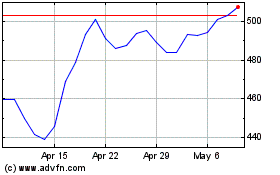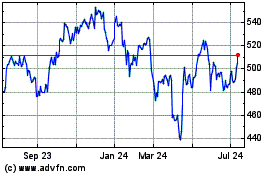WASHINGTON—The government on Thursday reported a surge in people
picking plans on the Affordable Care Act's federal exchange on the
day after voters elected presidential candidate who has pledged to
repeal the law.
Insurance agents and consumer groups say they think final
enrollment totals for coverage in 2017 will be depressed in light
of President-elect Donald Trump's victory Tuesday. He has made
getting rid of the law a priority.
On Wednesday, however, about 100,000 people made plan selections
on the federal exchange—the highest daily number since enrollment
began Nov. 1. It ends Jan. 31.
"Is it people trying to get in before something happens? I don't
know but it's possible," said Brian Burton, an enrollment worker in
Lafayette, La.
Health analysts, insurance brokers, and the navigators who help
people obtain coverage said some consumers fear Republicans will
take away the tax subsidies that offset premium costs. Some also
said people are asking if they can forgo enrolling because they
believe the Trump administration will end a requirement that most
individuals have health insurance or pay a penalty.
"We've had people reach out and say 'the law's going to change,
we don't have to get coverage,' " said Ronnell Nolan, president of
Health Agents for America Inc. in Baton Rouge, La. "We're using
social media and newsletters to say 'you've got to inform consumers
that it's the status quo.' "
Mr. Trump, after his inauguration Jan. 20, could seek to cut off
money that goes toward public messaging and outreach about the ACA
to consumers during open enrollment. That is a critical month for
sign-ups since experience shows many people wait until the end of
open enrollment to get their coverage.
A number of Republicans, including House Speaker Paul Ryan of
Wisconsin, are calling for a quick repeal of the law as a first
order of business. Key components of the ACA could be overturned
through a budget maneuver. It could take longer, however, to
fashion new health-care programs to take its place.
Confusion about whether the law or parts of it will stay in
place could further destabilize the exchange markets, especially if
enrollment comes from only those people who most need coverage.
They tend to be older, sicker and more expensive to insure.
"If they only sign up insurers will have huge losses," said
Timothy Jost, a law professor at Washington and Lee University in
Lexington, Va.
Brokers and enrollment groups say they are working to get word
out that the law and subsidies still exist. Any successful repeal
efforts will likely include a transition period for consumers that
leaves subsidies in place at least for next year based on an
earlier GOP effort which was vetoed by President Barack Obama.
"We understand a lot people have questions and are telling them
'nothing has changed,' " said Mr. Burton. "We're trying to reassure
people."
Anne Filipic, president of Enroll America, a national sign-up
group, said in a statement that it is critical for consumers to
know that nothing has changed and that people who sign up and pay
their first premium by Dec. 15 will have coverage starting Jan.
1.
Ron Pollack, president of Families USA, a consumer-health lobby,
said he is working with groups across the country to protect the
law and rally against repeal.
The Obama administration has said it hopes to have 13.8 million
people select a plan by the end of open enrollment for 2017, an
increase of 1.1 million compared with the end of the 2016
period.
There is also concern that turbulence in the insurance market
could hamper sign-ups. Major insurers such as Aetna Inc. and
UnitedHealth Group Inc. have curtailed participation, limiting
consumer choice. And premiums on the exchanges are rising an
average 25% in 2017 on benchmark health plans in part because
people who have obtained coverage so far have been more costly than
expected
People who are most likely to be affected by a repeal include
about 85% of the 11.4 million consumers expected to get subsidies
on the exchanges next year.
"It's not even lunch time and I have already met with 4
panic-stricken consumers who want to know what to expect in their
health care—a question we really can't answer other than to assure
them we are on their side, that we will continue to advocate for
better health policies and continue to assist them in every way we
can," said Lauren Angeles, a senior advocate program coordinator at
the Alivio Medical Center in Pilsen, Ill., on Wednesday.
Frances Maane, a broker in Sterling, Va., said she believes
enrollment was already likely to be low because many insurers are
no longer giving commissions to brokers who steer people into
exchange plans.
"And I have people already saying 'am I going to have my
insurance next year?' Clearly no one knows," said Ms. Maane. "Last
year the phone rang off the wall, this year it's scary how quiet it
is."
Louise Radnofsky contributed to this article.
Write to Stephanie Armour at stephanie.armour@wsj.com
(END) Dow Jones Newswires
November 10, 2016 16:15 ET (21:15 GMT)
Copyright (c) 2016 Dow Jones & Company, Inc.
UnitedHealth (NYSE:UNH)
Historical Stock Chart
From Apr 2024 to May 2024

UnitedHealth (NYSE:UNH)
Historical Stock Chart
From May 2023 to May 2024
